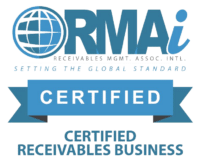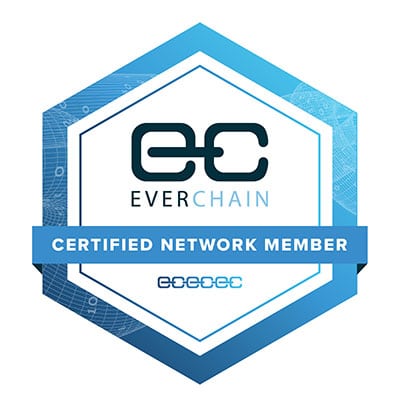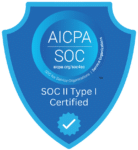Understanding the nuances of selling debt, buying debt, and how the receivables industry works cannot be done in a vacuum. But diving deep into the intrinsic benefits selling charged-off debt has for credit unions is a good place to start. Landmark Strategy Group has long worked with credit unions to secure cash flow, help maintain good consumer relationships, and fully realize their bottom-line potential.
In this article, we will dive into the fundamental reasons credit unions should sell charged-off debt and the immediate impact that decision will have on both the credit union and its members.
1) Immediate Cash Flow for Creditors
Starting off with the most notable aspect of selling charged-off debt, all debt sales create an immediate influx of cash for credit unions. These funds can be strategically reinvested in more profitable ventures or used to strengthen various financial positions the credit union is focusing on. Rather than waiting for unpredictable payments, selling charged-off debt ensures a predictable cash inflow.
Predictability is the lifeblood of all credit unions. Members expect consistent service, interest rates, and cash availability compared to larger banking institutions. If a credit union collects debt, spending too much time waiting for payments that may never come from charged-off accounts, members could lose faith in their ability to provide them the right financial services.
2) Straight to the Bottom Line
Piggybacking off of a debt sale’s immediate cash flow, selling charged-off debt has the unique benefit of being a “bottom-line” transaction. When these assets are written off as bad debt, they negatively affect financial statements. However, by selling debt, credit unions can swiftly recover some of the outstanding balance, bolstering their financial health and improving their overall performance.
Even if it’s pennies on the dollar, as most debt sales are, getting an influx of cash that directly impacts a bottom-line result can bolster a quarter, improve a credit union’s relationship with its members, and showcase its unique ability to turn lemons into lemonade. In a similar vein, creating value from “bad debt” such as charged-off accounts is one of the hallmark ways financial institutions can stay afloat.
3) Respecting All Members by Collecting Past Due Accounts
Credit unions are founded on the principles of community and cooperation. By actively pursuing the collection of past-due accounts, they uphold their commitment to all members. This approach not only protects paying members from the negative consequences of non-payment but also preserves the integrity of the credit union itself.
Members not in bad standing are supporting the credit unions more than those in poor financial health. Supporting these members by selling debt is one of the many ways credit unions can improve their relationships with their most respected members. Should they focus too heavily on charged-off accounts and sit on bad debt, it is likely that over time, respected members will lose confidence that the credit union can handle both good and bad financial periods.
4) The Vital Triad of Recovery Channels
A successful debt recovery strategy necessitates a unique three-pronged approach that doesn’t eliminate the possibility of any recovery method. Credit union collection strategies should include a well-rounded trio of recovery channels—namely collections, litigation, and sales. Collections and litigation are instrumental in maximizing recoveries from delinquent accounts in their early stages, while debt sales can be strategically leveraged to monetize older, more challenging-to-collect debts.
The reality is that a credit union is not always designed to handle challenging collections. There are dozens of collection firms on the market with the expertise, knowledge, and compliance background necessary to take the appropriate steps to recover on charged-off accounts. Credit unions working with a collection agency can maximize their three-pronged approach, focus on the collection and litigation strategies limited to their expertise, and sell charged-off debt to professional collection firms.
5) Contractual Limitations and Impact on Price
While selling charged-off debt can be beneficial, it’s essential to recognize that contractual limitations on recovery efforts can directly impact the sale price. Potential buyers assess the likelihood of recovering funds when determining their purchase price. Therefore, it’s crucial for credit unions to strike a balance between restricting recovery efforts and maximizing the value of the debt.
Like all sales, contracts determine the overall expectations of the debt sale. Credit unions and other debt sellers have a unique ability to set the terms of the contract and the impact those terms will have on the value of the portfolio. For those looking for more control over the debt sale, these contracts are vital. For those who build long-term relationships with a debt buyer, these contracts can become less restrictive over time to ensure not only better cash flow but overall more impactful performance across the portfolio.
Find The Right Debt Buying Partner for a Credit Union
A strategic debt buyer partner is not merely a transactional collaborator; they are an extension of the credit union’s values and mission. The right partner brings expertise, transparency, and a shared commitment to ethical debt collection practices. They understand the delicate balance between recovering debts and respecting the credit union’s members. A suitable debt buyer partner for a credit union recognizes that each debt represents a unique member’s financial situation and treats them with empathy and fairness.
Ultimately, the right debt buyer partner can help the credit union achieve its financial goals while upholding its reputation and values, ensuring a mutually beneficial partnership that safeguards both the credit union’s interests and its members’ well-being. When considering a venture toward selling charged-off debt, you must ensure that the right partner is being selected. Consider these five key aspects of debt selling and reach out to Landmark Strategy Group to understand the more intricate details of the debt selling process.
About Landmark Strategy Group, LLC
Landmark Strategy Group, LLC is a nationally licensed and bonded receivables management firm located in West Seneca, NY that specializes in passively purchasing non-performing receivables portfolios. Mark Lesinski and the rest of Landmark’s executive team have a combined total of 60+ years of experience in the ARM industry and have developed efficient and compliant processes that deliver a quick valuation, streamlined purchase, and exceptional customer service after the sale.





